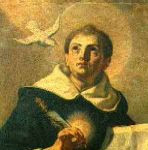John 19 and Christian Doctrine
Pr. Lehmann, a contributor to the comboxes and a dear friend of mine, mentioned something a few days ago. He said something to the effect of whether Jn 19 contained all Christian Doctrine and then stopped himself because it does. I am not doing his statement justice, and so I hope he will correct me. But I decided to use his observation as an impetus to reflect deeply on this Chapter. In so doing I noticed something that Pr. Lehmann might not have considered in his statement.
I was struck by verses 26 and 27. Now, I know as well as the next person that more ink has been used to talk about these verses in defending our views on Mary. But that's not what struck me about it (although I don't think that what I am about to say takes anything away from those observations). It occurred to me that if no one told us John wrote his eponymous Gospel we might not know who did. And I began to wonder why even here at the foot of Cross John did not mention himself. And then I began to realise that his omission might be the point after all.
It is a well known and ancient technique that certain characters, about whom we know very little even at the conclusion of the work, are inserted into the text so that we can see things from their point of view (like the two clowns in Kurosawa's The Hidden Fortress or their spiritual cousins the droids in the Star Wars saga). John does not call himself by name not only out of humility, but because he intends for us to be part of the story. We see what he sees. It is why he mentions, alone of the gospels, that he was known to the power structure and thus allowed to accompany Christ. Like the other Evangelists he could very easily just report what Christ said and did before Caiaphas or Annas or Pilate for that matter. But the point isn't just to report facts, but to tell us so that we will believe. That's the point of the whole Gospel, of course, as it says. But one way to do this is to bring the reader (or the congregant as the pericope is read aloud) into the drama of our salvation. We reclined at Table with Christ (and do every time the Sacrament is confected), we stood at the cross, we were given the Mother of the Saviour, we went into the tomb, etc. We were witnesses to this so that we might believe, for "whosoever believeth in [Christ] may not perish, but may have life everlasting." And after all, this most famous of Scriptures was noted down in whose Gospel?

2 comments:
Who is the "disciple whom Jesus loved"?
First of all it's John, but second of all it's all of us.
Who is Mary? First the mother of God, but second the Church Herself. That she is the stand-in for the church is explicitly clear in Revelation 12 (and perhaps the last verse of chapter 11).
So what do we learn of Christ and the Church from the Lord's Words to Mary and John?
We are born via baptism from the womb of the Church (here John hearkens back to 3:5). She is our mother.
Since we are Christ's brothers through the Father's adoption of us, Mary is also our adopted mother.
The passage you reference is beautiful indeed. It dovetails with v. 34. Out of the dead body of Christ is born His Bride by the living water the flows from his bosom. It is nourished by His blood. Here we see also how Gen. 2 is all about Christ and the Church. Eve is taken from the body of the first Adam. We are taken from the body of the Second Adam.
Of course, the standard disclaimer applies. If you'd said any of this it would be Popish nonsense. Since I've said it, it's perfectly biblical and orthodox--even Lutheran.
:-P
Just so other readers know, Pr Lehmann's last comment was an "in joke."
To your point, Apoc 12, Ireneaus and Justin Martyr were all on my mind. I was even thinking of making another parallel as you did. For I and JM, they focused on the angelic conversations the women had, but your observation is one that also clearly applies.
In the end, I wanted to keep my observations close to the text itself and the text alone.
So I am grateful to you for expanding into the wider Scriptural context.
Post a Comment